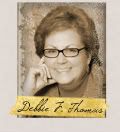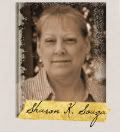To close off our contest, we wanted to spend a bit of time talking about the excerpts we posted the past two weeks. We have gained an appreciation for how difficult it is to hear the voice of an author in only a short piece, and I know that I (Bonnie) have grown to appreciate even more deeply the gifts and talents of the five women I am honored to called friends and colleagues.

My contribution was from Crossing the Breakheart which I am currently working on. I wrote this section about the protagonist tossing her manuscript from the Breakheart Bridge without really knowing why she wanted to get rid of it in the first place. I'd had a dream that she was standing on the bridge in her old age and knew that the manuscript was more or less a confession but didn't know what she was confessing. It was one of those times that I allowed the character to lead me until I found the bones of her story and she indicated that she needed help applying skin and muscle. I have to say that I wish I could have saved her from the consequences of her choices, but I could only help her find the good that God could bring from them.

I wrote my passage because I wanted to create an expectation in the reader. I wanted him or her to wonder about why someone would be out picking up bodies, and why she would continue doing that in spite of danger. But I also wanted to give a sense of the narrator, as a sensitive yet determined person who has the conviction that what she is doing has both earthly and eternal importance. She describes what she sees because she can't help but describe, which I hope gives the reader confidence that what they will read will be satisfying in its descriptions and explanations.
The lithopedia that I depicted in the first lines is a symbol of the dilemma of the narrator as well. As the author of
The lithopedia that I depicted in the first lines is a symbol of the dilemma of the narrator as well. As the author of
the epistle to the Hebrews, she carries a secret that may never come to light and life until her own life ends.

This scene is born from my protagonist Bristol's frustration at having her intensely personal and adamant intentions foiled by the three well-meaning women in her life: her sister, best friend, and crazy step-mother. Bristol has suffered incredible loss and can't bear to face the upcoming one-year anniversary, which is certain to be accompanied with renewed media presence. And so, she's gone away with the intent to take her life at the exact hour of the anniversary. But her trio of "keepers," unaware of her plans, conspire to keep her from being alone throughout the long weekend of the anniversary. It's their presence that lends the humorous relief that keeps Color of Sorrow from becoming an albatross around the neck of the reader.

My story, Goodness and Mercy, is about an orphaned sixteen-year-old girl who will do anything to keep her brother and sister from being adopted away from her. The story was born out of my family’s story. My mother was abandoned by her parents with six younger brothers and sisters to take care of when she was sixteen. The state stepped in to find homes for all of the children but her, because she was deemed old enough to take care of herself. All of these years later—she’s nearly 82—we are still a family, mostly because my mom didn’t let a little thing like adoption un-sister or un-brother her siblings. I love that about my mom. And I wanted to catch that fierce loyalty in my hero.
This excerpt is Lucy’s (my hero’s) ordinary world, a world where she is in charge but still nearly a child herself. She’s visiting her mother’s bedroom as if it is a shrine, hoping to gain the courage to do what she must do.
This excerpt is Lucy’s (my hero’s) ordinary world, a world where she is in charge but still nearly a child herself. She’s visiting her mother’s bedroom as if it is a shrine, hoping to gain the courage to do what she must do.

The excerpt from A Girl Named Fish takes place in the first third of the novel, after we've gotten to know the main character, Joan, and the world she lives in. The novel is written in third person, with only the journal entries written in first person. The novel is deeply personal to me, my past, and my present. While the plot and characters are utterly original to the novel, Joan's journey is part of my emotional biography. The journal serves as a miniature of the entire novel, which allows the reader to understand Joan's entire life in brief. Miniatures can be important elements of storytelling, where the writer can revisit the larger questions asked in the novel in condensed and simplified form.
This excerpt is actually a discard from The Wonders of America, a story about a single mom trying to learn the meaning of family in time to save her daughter from a life as lonely as her own. And who are her teachers? Her daughter's father's family, as united (or not) and dysfunctional as the nation it lives in.
So why is this excerpt discarded? Because I am learning from these wise and wonderful authors, and understanding better what the story is about, and how it must be told, and where it wants to go.
I might keep the line about the Antichrist, though.
This excerpt is actually a discard from The Wonders of America, a story about a single mom trying to learn the meaning of family in time to save her daughter from a life as lonely as her own. And who are her teachers? Her daughter's father's family, as united (or not) and dysfunctional as the nation it lives in.
So why is this excerpt discarded? Because I am learning from these wise and wonderful authors, and understanding better what the story is about, and how it must be told, and where it wants to go.
I might keep the line about the Antichrist, though.













3 comments:
Thank you, Ladies! This was really enlightening. It's interesting to read a little of the personal side of the writings we read.
Katy: I hope the antichrist line fits with your revisions. Made me smile.
Did I thank you already for an entertaining and enlightening contest? Merry Christmas everyone! And happy publishing.
Post a Comment